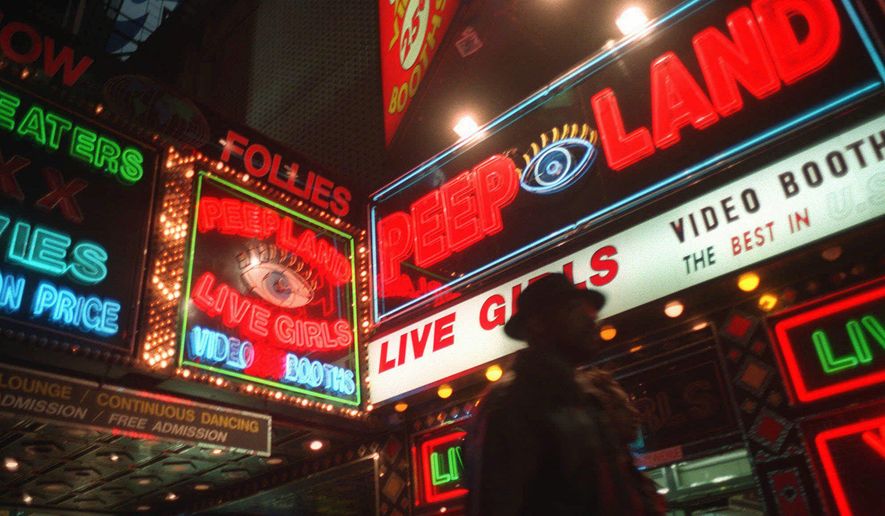NEW YORK (AP) - A dwindling number of peep shows, strip clubs and adult DVD stores have survived New York City’s two-decade legal war on smut and now, some of the survivors are worried a recent court decision could put them under for good.
In June, New York’s Court of Appeals reinstated rules dating to 2001 barring any establishment with “live performances characterized by an emphasis on certain specified anatomical areas or specified sexual activities” as well as sexually explicit videos from all but carefully selected city zones.
It isn’t the first time a court has sided with the city, only to have the regulations tweaked or overturned by another court later. But a lawyer who represents several X-rated shops said in an unsuccessful petition to the U.S. Supreme Court last month that if the city went ahead with long-delayed enforcement, it could put her clients out of business.
“New York has the tradition of being the freest and most tolerant city in the country, if not the world,” the lawyer, Erica Dubno, said. “And unfortunately, freedom of expression is being restricted and small businesses are in jeopardy.”
Several dozen of the adult establishments are still hinging their hopes on freedom-of-speech legal challenges, she said.
For now, there’s no urgency to clear out. The city is staying enforcement of the court decision pending a resolution of the legal loose ends.
In a statement, the New York City Law Department said it believed the city’s approach to regulating the businesses was “reasonable and lawful to protect our quality of life” and were intended to stem “the widespread circumvention of zoning regulations.”
New York’s well-known efforts to clean up its once booming pornography industry began in the mid-1990s, with regulations barring adult businesses from operating near churches or schools and in most commercial and residential neighborhoods. The rules shuttered many of more than 170 such establishments around the city, with then-mayor Rudy Giuliani helping rout them out.
Times Square, where porn parlors and strip clubs thrived into the 1990s amid Broadway theaters, now bears little resemblance to its old self.
But a few adult establishments remained, some because they found ways to work around a rule defining a business as adult if it devoted 40 percent or more of its floor space to the sex business.
Some strip clubs divided themselves in two, with part of the building devoted to hosting private events. One opened a sushi restaurant on one of its floors. Adult DVD and book stores stocked up on titles that had nothing to do with sex, and which often gathered dust. Others did less to diversify, offering coat checks, pool tables or condoms in their “non-adult” sections.
The city argued that many of these tweaks were a sham.
In 2001, the City Council altered zoning regulations to reduce the significance of the 60/40 test. Those changes, and others, were the subject of the court ruling in June.
Dubno said she has asked the state appeals court to reconsider its June decision.
At Mixed Emotions, a small, dusty shop a few blocks north of Times Square, it’s still business as usual. Sex gadgets and steamy videos filled walls and aisles last week, alongside single-occupancy peep booths that are often empty in an age of internet pornography.
Outside on West 50th Street, their store sign shines bright next to a boutique hotel, just steps from the Gershwin Theatre, where tourists flock daily to see Broadway’s “Wicked.”
Another survivor is the Show World Center, which opened in 1975 and once featured about 100 women working live peep shows. Show World’s longtime owner, Richard Basciano, died in May at 92. The live shows are long gone, but the business still sells adult books and more.
“I’m nostalgic for the old New York,” said Dubno, who represents both businesses. “Times Square has become like anywhere else, with the same stores, and New York has lost a lot of what made it so distinct. That’s what makes America great - that people can have their views.”
If the New York appeals court fails to reconsider its decision, Dubno will ask the U.S. Supreme Court to take a case, always a long shot.
“This is the last gasp,” said Dubno.




Please read our comment policy before commenting.